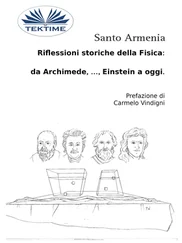Diana Apcar - Betrayed Armenia
Здесь есть возможность читать онлайн «Diana Apcar - Betrayed Armenia» — ознакомительный отрывок электронной книги совершенно бесплатно, а после прочтения отрывка купить полную версию. В некоторых случаях можно слушать аудио, скачать через торрент в формате fb2 и присутствует краткое содержание. ISBN: , Жанр: foreign_antique, foreign_prose, на английском языке. Описание произведения, (предисловие) а так же отзывы посетителей доступны на портале библиотеки ЛибКат.
- Название:Betrayed Armenia
- Автор:
- Жанр:
- Год:неизвестен
- ISBN:http://www.gutenberg.org/ebooks/53170
- Рейтинг книги:5 / 5. Голосов: 1
-
Избранное:Добавить в избранное
- Отзывы:
-
Ваша оценка:
- 100
- 1
- 2
- 3
- 4
- 5
Betrayed Armenia: краткое содержание, описание и аннотация
Предлагаем к чтению аннотацию, описание, краткое содержание или предисловие (зависит от того, что написал сам автор книги «Betrayed Armenia»). Если вы не нашли необходимую информацию о книге — напишите в комментариях, мы постараемся отыскать её.
Betrayed Armenia — читать онлайн ознакомительный отрывок
Ниже представлен текст книги, разбитый по страницам. Система сохранения места последней прочитанной страницы, позволяет с удобством читать онлайн бесплатно книгу «Betrayed Armenia», без необходимости каждый раз заново искать на чём Вы остановились. Поставьте закладку, и сможете в любой момент перейти на страницу, на которой закончили чтение.
Интервал:
Закладка:
“This shocking crime of Yildiz formed a deep lake of blood, and this lake, during the whole course of a cursed absolutism, up to the last moment, grew wider. Even during the past nine months of the Constitution, in spite of the brotherly feelings which had been shown, the awful events in Adana took place and the souls of all true Osmanlis melted into tears. Up to the present time the deep sorrow caused by this event has not disappeared, because this bloody wound in our social body cannot easily be cured. While we fill our stomachs with choice morsels, while we rest selfishly in our comfortable beds, these fatherless and brotherless orphans, widows hungry, naked, and barefoot wander hither and thither, and thousands of families are fleeing from the fatherland. We are convinced that the government is doing its work, but what has happened is so great a calamity that it can keep a government busy for years. However much sacrifice we may make, still it will be inadequate, because the happiness of the fatherland depends on healing such blood wounds as these as soon as possible. We are convinced that the government and all connected with it are persuaded of this as well as ourselves. We must now wipe out the traces of the misfortune brought by a cursed period. We must now comfort weeping hearts. We must understand and teach those who do not understand that patriotism and brotherhood do not differ from each other. The responsibility of the government for the Armenians is very great and very weighty. The whole Ottoman nation is under obligations to protect this suffering race, because the liberty we enjoy to-day is in large part due to the blood shed by the Armenians. We thought that these truths were so obvious that we preferred to keep silence, whereas to-day we understand that it is necessary from time to time to recall the greatness of our obligation. We must not forget that this unhappy people up to yesterday has endured only barbarism, and for twelve years has been constantly oppressed and ground to the earth, and has given thousands of victims. Hereafter we must work to assure them that the era of massacres has passed, and with all our strength of mind and soul we must quiet them. The obligation of the government to protect them is also very heavy, because our Armenian countrymen live among wandering tribes. We must all assist the government and point out its obligation. It must be declared in public and periodically that the one of the most important duties of the Ottoman nation is to protect, together with those of other races, the interests, the life, and property of the Armenians as well, since these are their sacred rights. Let investigations be made and let whatever is necessary be done in order to reach this aim.”
This article of the Turkish officer, who however does not dare disclose his identity; and the account given by an authority like Mr. James Bryce surely refute the facile explanation of Ahmed Riza Bey in alluding to the Massacres as “les Massacres occasionnés par les aventuriers Arméniens.” Indeed it holds out poor hope for the furtherance of liberty and justice in Turkey when the man who is the President of the Chamber of Deputies only as far back as 1907 tries to palliate the horrors of the Hamidian régime by misrepresentations.
The author of “La Crise de l’Orient” also cites the Japanese as an instance of the civilization and aptitude for progress of a non-Christian oriental race. In this case, Ahmed Riza Bey certainly needs to measure the distance between the mental, moral and humane qualities of the Japanese and the Turk, a distance as great as lies geographically between the North Pole and the South.
PART I
THE ARMENIAN MASSACRES AND THE TREATY OF BERLIN
Since the gathering of the Plenipotentiaries of Europe at the famous Congress of Berlin in 1878, and the signing of the still more famous Treaty of Berlin, the martyr roll of the unfortunate Armenian nation stands without its parallel in history.
In the Guildhall at Berlin hangs a picture of the memorable scene witnessed in that city on July the thirteenth 1878. The painter has depicted the proud array of representatives of the powerful Governments of Europe, but in the interests of Humanity there should be attached to that painting the wording of Article 61 of the Treaty of Berlin written in letters of blood (Armenian blood).
It was a curious irony of Fate, that although the taking of “the terrible stronghold of Kars,” universally admitted to be one of the greatest and most difficult military exploits ever achieved, and the crowning success of the Russian arms in Asiatic Turkey, should have been accomplished by an Armenian General; that although Armenian Generals in the Russian service had led to conquest, and Armenian soldiers fought, conquered and died, yet by these successes not only was no amelioration attained of the hard fate of their unhappy nation under Turkish rule, but that fate, hard before, was made a hundredfold and even a thousandfold harder.
The efforts of the Armenians, and the entreaties of their Patriarch Nerses had procured the insertion of Article 16 in the Treaty of San Stefano signed between Russia and Turkey in March 1878. In fact the wording of the Article had been suggested by the Patriarch himself. It provided the following stipulation for the protection of the Armenians: —
“As the evacuation by the Russian troops of the territory which they now occupy in Armenia, and which is to be restored to Turkey, might give rise to conflicts and complications detrimental to the maintenance of good relations between the two countries, the Sublime Porte engages to carry into effect without further delay the improvements and reforms demanded by local requirements in the provinces inhabited by the Armenians, and to guarantee their security against the Kurds and Circassians.”
What followed has passed into history. The British Government of which Lord Beaconsfield (then Mr. D’Israeli) was Premier, and Lord Salisbury Foreign Secretary, once more pursued the old policy of baffling Russian aggrandizement in Turkey. Afraid that her own real or fancied interests would thereby become imperilled, England threw in the weight of her power, and virtually commanded the substitution of the Treaty of Berlin in lieu of the Treaty of San Stefano. Thus the substantial guarantee of a natural and immediate protector, both able and desirous of enforcing the protection which the Armenians then had in Russia, was taken away, and the security of impotent words given in its stead, namely: —
“The Sublime Porte undertakes to carry out without further delay the improvements and reforms demanded by local requirements in the provinces inhabited by the Armenians, and to guarantee their security against the Circassians and Kurds. It will periodically make known the steps taken to this effect to the Powers, who will superintend their application.”
“ It will periodically make known the steps taken to this effect to the Powers, who will superintend their application. ” How this last proviso could furnish food for laughter were it not for the terrible tragedy involved in it.
The insertion of Article 61 in the Treaty of Berlin, granted, or rather seemingly granted, by the six Powers of Europe, proved in reality, as subsequent events bore out, an instrument of death and torture. It was as if the reversal of the figures had reversed the possibilities of succour and protection, and with the death of the Czar Liberator, the last chance of the Armenians died.
The Turkish Massacres of 1875 and 1876 which led up to the Russo-Turkish War of 1877 are historical facts too well known to need further comment in this article. The Czar Liberator stands out in history as that noble figure – a benefactor of mankind. Through his humanitarian susceptibilities, and his sublime efforts for their deliverance, the Christians of European Turkey received immunity from Turkish slaughter; and the protection of his benevolent arm was extended over that unhappy Christian nation of Asiatic Turkey, the Armenians; at least it would have secured them immunity from the record-breaking slaughter that followed, but the Power that had stood behind Turkey since 1791 frustrated his endeavours.
Читать дальшеИнтервал:
Закладка:
Похожие книги на «Betrayed Armenia»
Представляем Вашему вниманию похожие книги на «Betrayed Armenia» списком для выбора. Мы отобрали схожую по названию и смыслу литературу в надежде предоставить читателям больше вариантов отыскать новые, интересные, ещё непрочитанные произведения.
Обсуждение, отзывы о книге «Betrayed Armenia» и просто собственные мнения читателей. Оставьте ваши комментарии, напишите, что Вы думаете о произведении, его смысле или главных героях. Укажите что конкретно понравилось, а что нет, и почему Вы так считаете.












